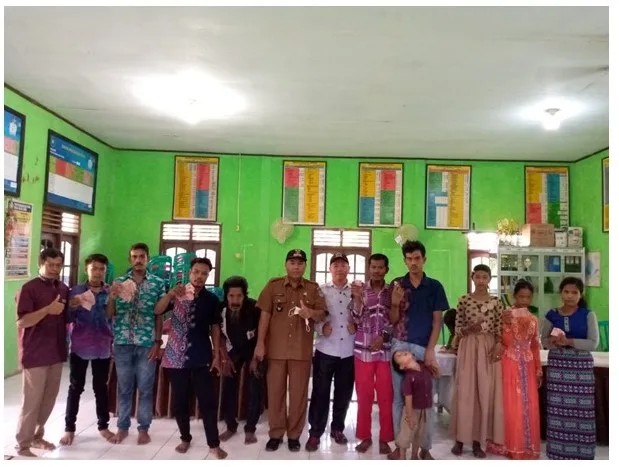The Orang Rimba are one of the minority indigenous tribes in Jambi Province. They have long made the forest area their home and source of life. In their traditional life, the forest is not just a place to live, but also a deep cultural identity. For the Orang Rimba, the forest is everything: a source of food, medicine, shelter, and an arena for traditional rituals that connect them to their ancestors.
However, in recent decades, forest conversion policies have changed everything. These changes not only affect the physical environment but also damage their social and economic lives. Forest conversion policies for oil palm plantations, transmigration settlements and infrastructure development have displaced them from their natural habitat. As a result, they lost the livelihood space that had supported their survival and culture.
The loss of forests means the loss of resources that the Jungle People desperately need to survive. They not only lost their homes but also lost their natural sources of food and medicine. In this context, they experience deep marginalization. Their lives changed drastically. From a society that is independent and based on local wisdom, to a group that is dependent on the mercy and policies of the government which are often impartial.
The impact is not only felt materially but also socially and psychologically. They often experience negative stigma by society at large, are treated discriminatorily, and are marginalized due to their geographical remoteness. In addition, cultural and religious differences often complicate their interactions with the majority society. When outsiders look at the Orang Rimba, what they see is their differences and inability to adapt to modern life. Not as a group that has rights and culture that must be respected.
The lack of appropriate information and limited access makes it difficult for Orang Rimba to get the help or support they need. Understanding of their rights is often unclear or not well understood by the government and the general public. For example, aid programs often do not reach them due to administrative problems and a lack of official documentation at their disposal.
Rejosari Village, one of the villages in Pamenang District, was once a dense forest that provided a roaming space and livelihood for the Orang Rimba. However, after the government's transmigration program, this area was converted to oil palm plantations and transmigration settlements. The Sumatra crossing road which cuts through forests in the Pamenang area is accelerating the loss of the Orang Rimba's natural habitat.
Orang Rimba who have lost their "jungle" have to adapt prematurely without the ability to live to compete with transmigration residents who receive facilities from the government. They live on the remains of their land while others move around erratically, often living in gardens belonging to villagers. Their source of livelihood depends on hunting, collecting palm oil, areca nut and collecting used goods. However, this condition is increasingly difficult because animals are increasingly difficult to hunt and palm oil harvesting activities often trigger conflicts with plantation owners.
During the COVID-19 pandemic, Orang Rimba were not only affected by the pandemic which limited activities. But also the impact of the African virus which is killing pigs in large numbers, resulting in their hunting resources decreasing. This situation forces them to rely almost exclusively on palm oil, areca nut and second-hand goods, which increases the risk of conflict with villagers and makes them branded as thieves.
However, Warsi's successful advocacy to the Ministry of Social Affairs to affirm the COVID-19 Cash Social Assistance (BST) for Orang Rimba was enough to help them fulfill their basic needs. After the pandemic subsided, even though BST assistance was no longer provided and replaced with Non-Cash Food Assistance (BPNT), not all of them received BPNT due to inaccurate data collection.
Slowly, the attention of the Rejosari village government began to improve. This village has begun allocating Direct Cash Assistance (BLT) from Village Funds for the Orang Rimba Minan group of Rejosari Village. One significant step was the appointment of one of their cadres to become part of Linmas, who is involved in social activities and securing events in the village.
On Monday, March 25 2024, at the Rejosari Village Office, village officials, poor residents and Orang Rimba gathered for the distribution of Village Fund BLT. The Village Head, Pak Yuli Widodo, said that even though BLT funds were reduced, they were committed to ensuring aid was distributed fairly. What makes a real difference is the approach to Orang Rimba. They will remain on the receiving end of the year with no changes. Ensure better interaction with the government and stability of their lives.
Tumenggung Minan, a representative of the Orang Rimba group, felt relieved and expressed his gratitude for the attention of the village government. At the end of the meeting, 22 BLT DD recipients were announced, including nine families from the Orang Rimba group. Rejosari Village is an example of how justice and solidarity can be realized in society.
*This article was written by: Rusli Effendi, KKI Warsi


